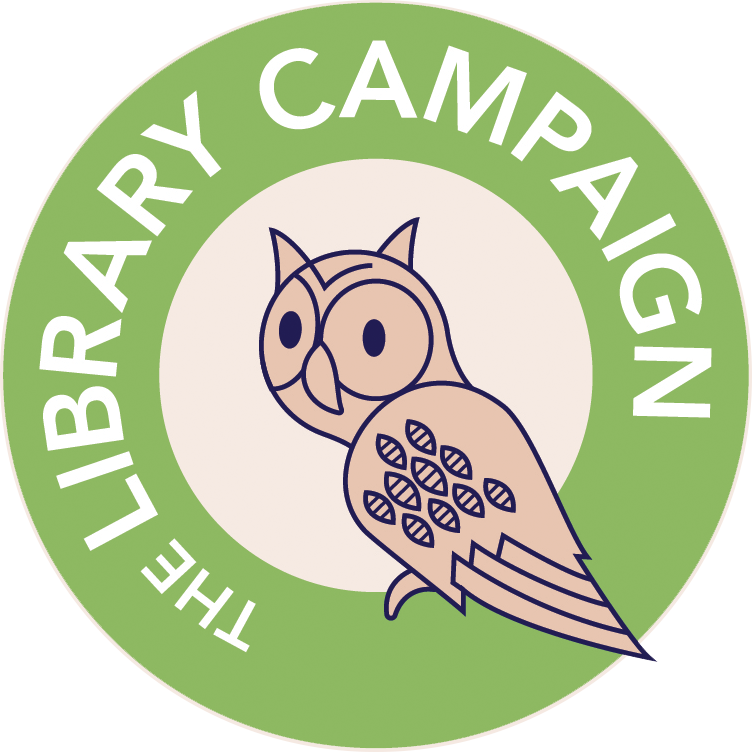GET ONLINE
A Facebook page, and/or a blog (WordPress, Blogger or Wix) are essential so that interested people can find you.
That done, you’ll want a more day-to-day publicity tool to broadcast brief messages.
This keeps you in the news, directs people to your basic page/blog and publicises specific events or campaign activities. Twitter is the classic. Instagram is essentially visual.
All these are free, relatively simple to set up, and even easier to run.
THEN…
Once you have a Facebook page or blog, tell us so that we can add you to our national list (and please tell us about any other groups you know of that we have not included). Email: thelibrarycampaign@gmail.com
EXPLOIT SOCIAL MEDIA
COVID-19 has created a new need for remote ways to communicate and discuss. You can also hold meetings ‘live’ (and you can record them).
This resource from Libraries Connected is aimed at library staff, but has good clear advice for anyone looking to advance their use of social media.
Look under ‘Reports and Guides’. From a long and very mixed list, pick out: Social media toolkit, Facilitating meetings online toolkit, Facebook Live toolkit, Facebook group toolkit.
More ambitious: Screen capture photos and videos toolkit, Creating a YouTube channel toolkit, How to make a podcast toolkit.
VIDEO
Video attracts attention on the web. Animoto is a tool for stitching your own photos and video clips together.
OFFLINE
Don’t forget that not everyone is online. You may have to set up a system to keep certain people in the loop, by having a designated person to phone each one, or deliver things.
REGULAR NEWS
A newsletter or a regular mailout (email where possible, to save money) does not have to be long or elaborate. It will keep members (and potential members) informed of activities and encourage them to stay (or get) involved.
It also provides a means of communicating with the council, other organisations and the media – keeping the group in the public eye. People and press may not respond the first time, but a regular message will sink in.
Local community groups and area forums have newsletters, leaflet drops, e-letters and websites. They will give you space instead of (or in addition to) your own publications.
GET PHYSICAL
Notices, posters and leaflets will reach more people at local level. Printed T-shirts, balloons, badges, mugs etc can give the message a longer life.
- Find out who can design & produce material, print things cheaply, distribute them (and where).
- Compile a list of willing community notice-boards, shops, public spaces, schools, GP surgeries, people with street-facing windows, etc.
Canva is a tool for creating professional-looking banners, posters and flyers. It provides a range of template sizes (eg banners for Twitter posts, A4 posters) or the option to create to your own custom sizes, bringing together text, photos and graphics.
LOCAL MEDIA
List the local media and their contact details. More about using the media HERE.
Public libraries are of real interest to local media. They are automatically accepted as a Good Thing. The services they provide are so varied that an angle can be found to attract any publication, from current affairs to local history.
Local media includes print (check publication dates and their deadlines), online newspapers, hyper-local and community blogs and newsletters, local radio, phone-in radio programmes, local/regional TV.
These days all are so under-staffed and under-funded that they are often happy to accept material (copy/photos/video) from the public. They may actively solicit it.
USEFUL PEOPLE
List useful people and their contact details.
Ask them to visit the library, attend a meeting or demonstration, lend their name as a supporter, suggest other useful contacts or just tweet about you.
Checklist:
- people who run local community groups,
- trade unions,
- the Mayor,
- the council’s chief executive,
- the leader of the council,
- the cabinet member responsible for libraries,
- the councillors for the ward where your library is based,
- opposition councillors,
- members of the scrutiny committee.
- the local MP.
- celebrities (to attract the press) – anyone with a high profile in your area, anyone famous who lives locally (if there’s nobody else, you are pretty sure to find an author – library staff will probably know).
MEETINGS
Get people together. You may want to hold a protest meeting. You may just want to have an interesting event to get people to visit the library and get involved.
Tip no 1: be sure to have ample opportunities to capture details of people attending who want to offer support. Don’t let them escape! Have multiple sign-up points with paper and pens. Better still, multiple mobile phones or laptops so the information does not have to be transcribed (this is a long job and often falls by the wayside – a serious waste!).
Tip no 2: to run an event where you need to restrict numbers, or sell tickets, Eventbrite is easy to use. It is free for free events. There’s a relatively small charge for paid events.
Tip no 3: Facebook Events is a simple way to get users’ attention and keep it. With its calendar connection, many people have their Facebook events connected to their smartphones. https://m.facebook.com/events

